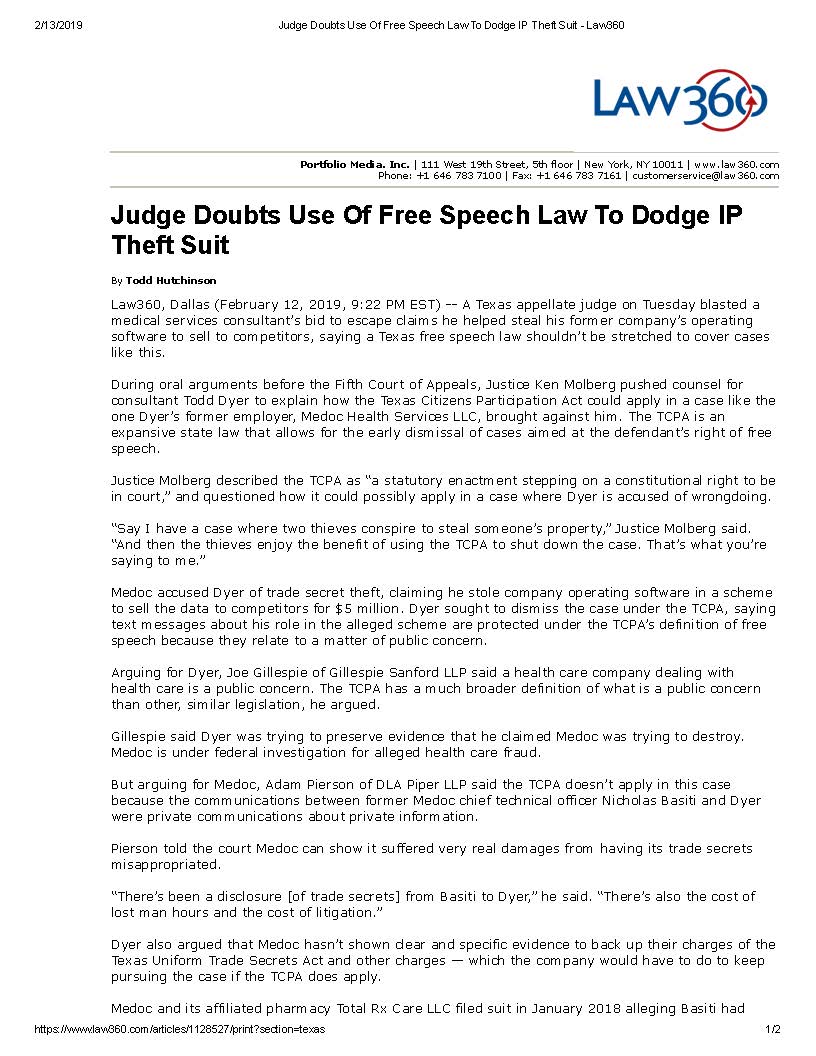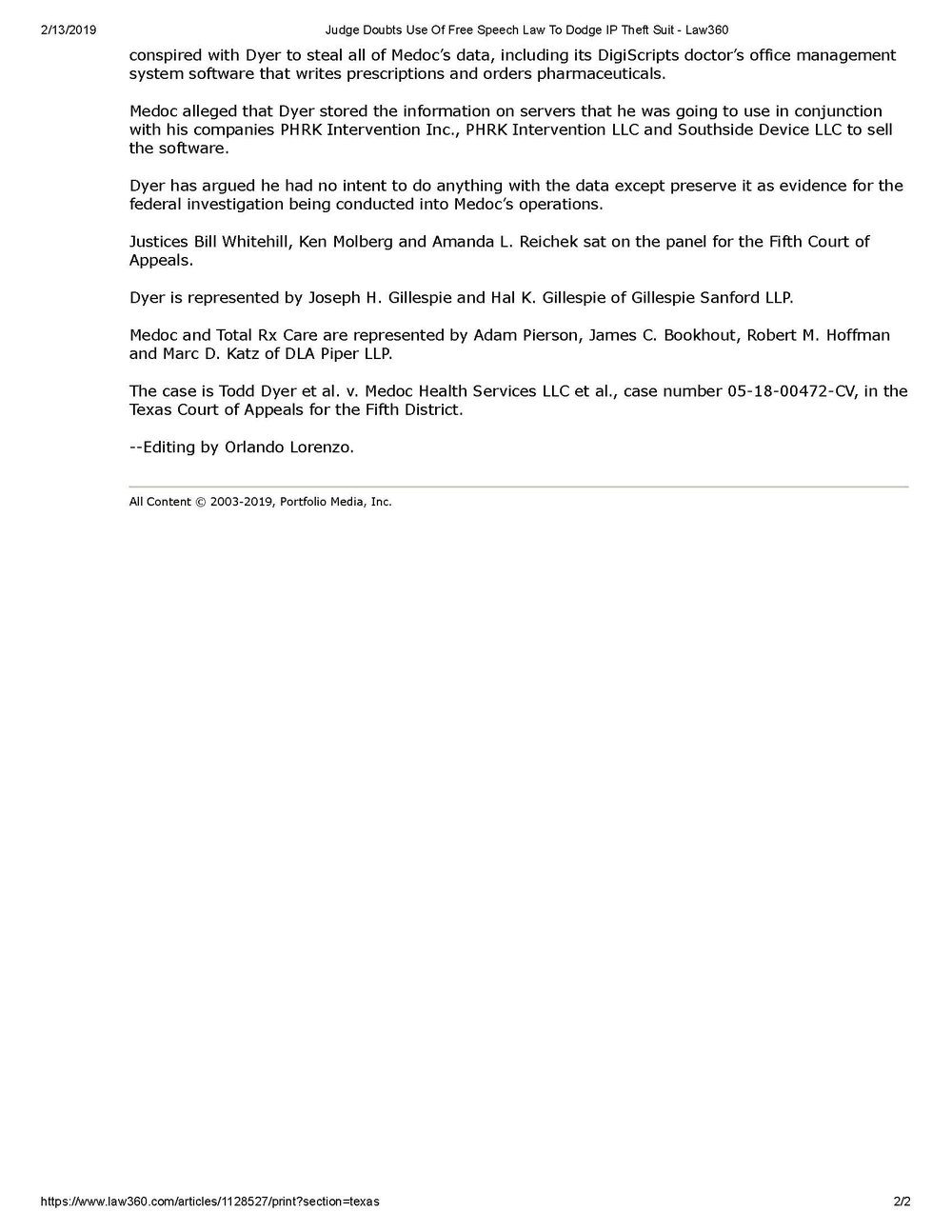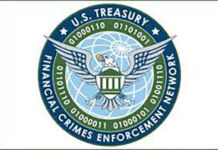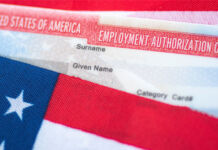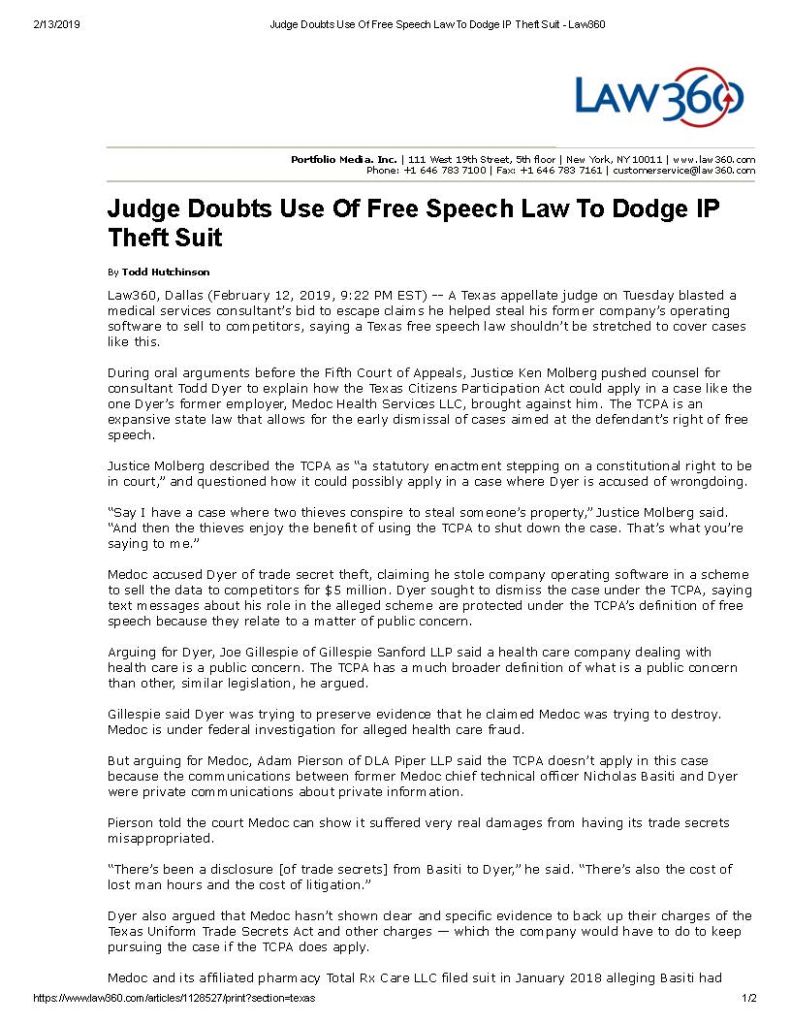
This past November eight new judges (all Democrats) were elected to the Dallas Court of Appeals. While the Dallas COA has yet to issue a Texas Anti-Slapp opinion in 2019, we may have a glimpse of how at least one of the new justices views its application to trade secrets claims. Law 360 reports the following questions from newly elected Justice Ken Molberg:
“Justice Molberg described the TCPA as “a statutory enactment stepping on a constitutional right to be in court,” and questioned how it could possibly apply in a case where Dyer is accused of wrongdoing. “Say I have a case where two thieves conspire to steal someone’s property,” Justice Molberg said. “And then the thieves enjoy the benefit of using the TCPA to shut down the case. That’s what you’re saying to me.”
In 2017, the Austin COA issued Elite Auto Body LLC v. Autocraft Bodywerks, Inc., 2017 WL 1833495, Tex.App. – Austin, May 5, 2017) which dismissed a trade secret misappropriation claim under the Texas Anti-Slapp. Elite Auto Body relied upon ExxonMobil Pipeline Co. v. Coleman, 512 S.W.3d 895 (Tex. 2017), which reversed the Dallas COA’s refusal to apply the Texas Anti-Slapp to an employment dispute case. The Austin COA determined that Coleman stands for the proposition that the broad definitions of the Texas Anti-Slapp covers claims that otherwise would not fall within the typical understanding of constitutional rights. This analysis is consistent with the Texas Supreme Court’s analysis in Youngkin v. Hines, 546 S.W.3d 675 (2018) that the Texas Anti-Slapp is broader than constitutional safeguards. (See my earlier blog post on the TSC 2018 Year in Review).
How the case will turn out remains to be seen. But we may see a dissent or concurrence that joins a growing list of jurists that are issuing opinions( in dissents or concurrences) that request legislative change to the Texas Anti-Slapp.
